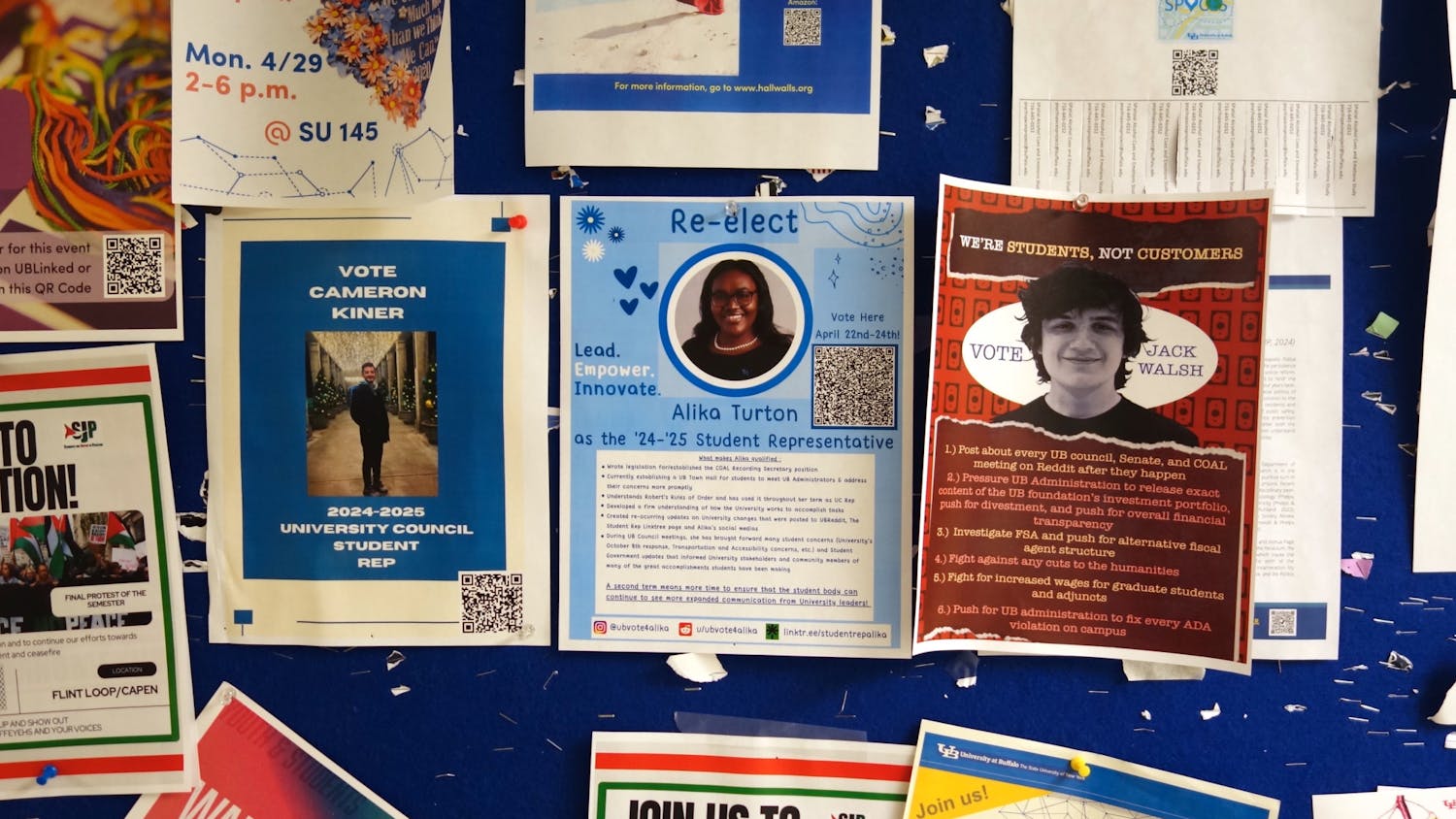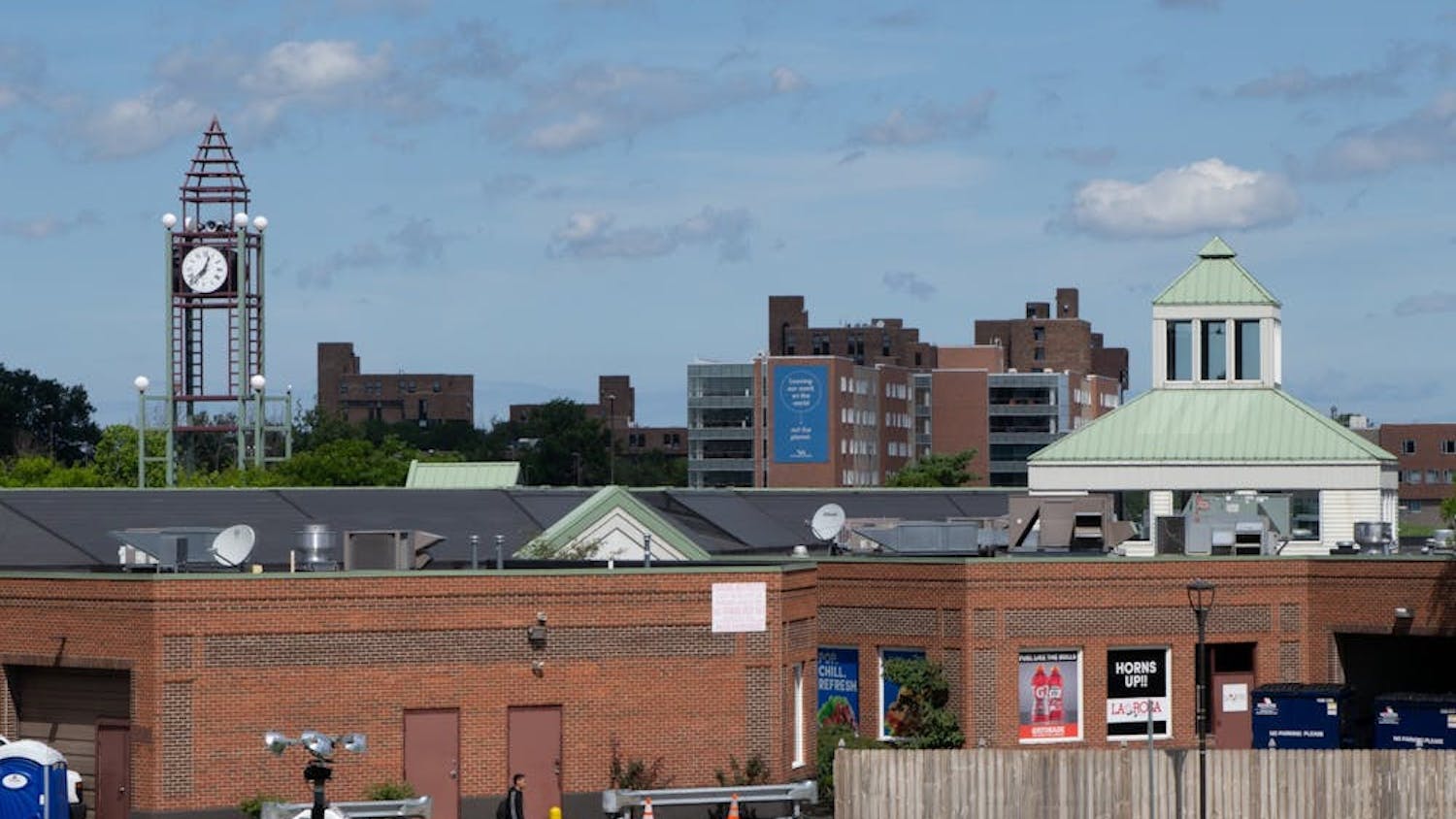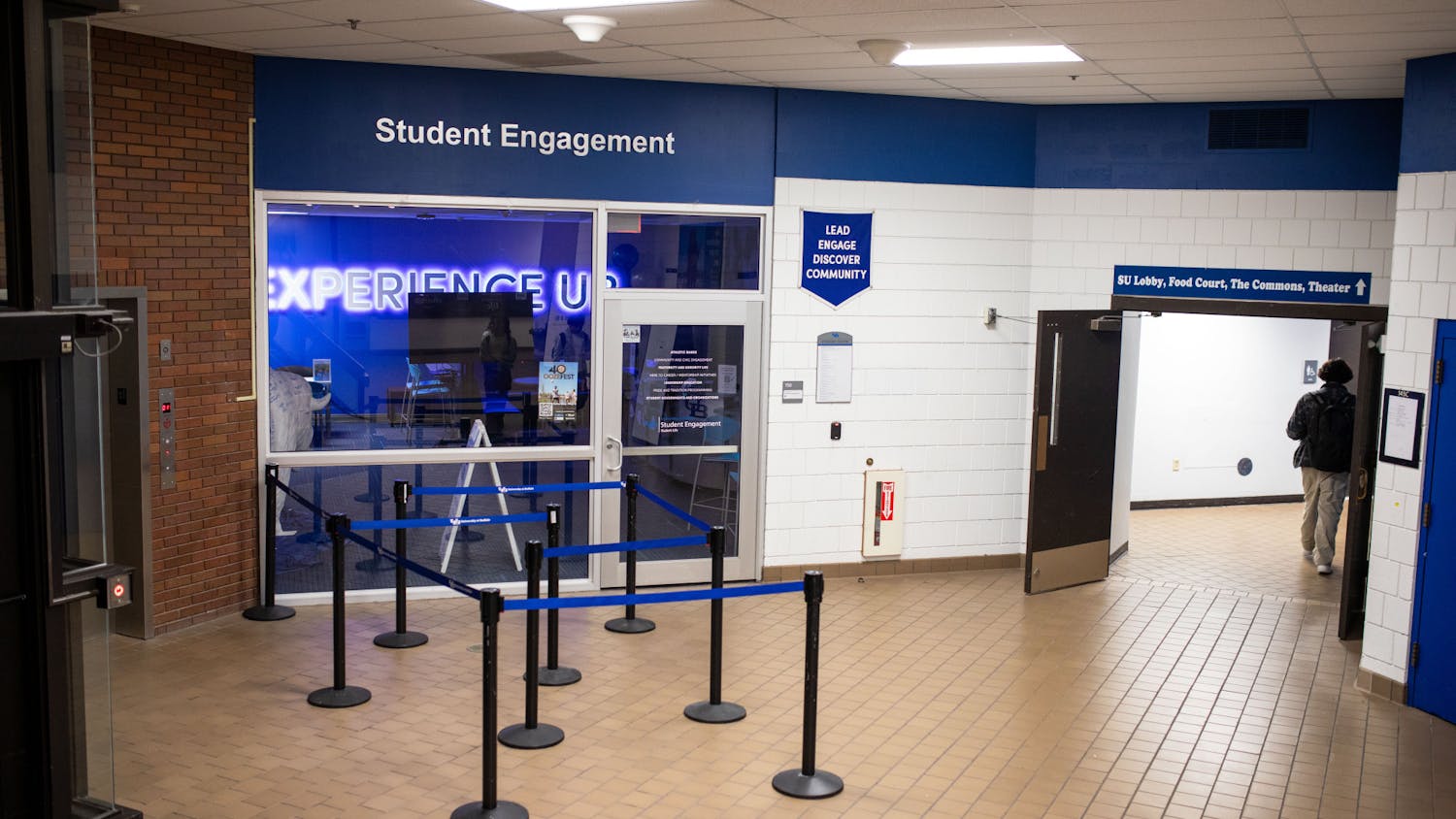Following his question-and-answer session at UB Wednesday, Assemblyman Sam Hoyt (D-Buffalo, Grand Island) and District Office Director S?_ra Kolberg fielded questions from The Spectrum in a half-hour interview.
[Editor's Note: Hoyt was unaware the Lee Road Master Plan entails the demolition of the Commons and that the current Commons vendors would be relocated into the new structure connecting the Ellicott complex with the academic spine.]
That's amazing. What can I tell you? I'm shocked that they're tearing down a 10-year-old or less building. I don't know what more I can say. What they're attempting to create here already exists here at the South Campus and as I said before, I'm the author of the state's first comprehensive smart growth legislation and what that's about is smart investment of dollars and what does that mean?
It means if there's an existing infrastructure, as opposed to creating new, invest where that infrastructure is. And they're going to spend millions of millions of dollars replicating something that already exists when I think that they ought to be investing in the South Campus, they ought to be investing in the South Campus community, the University Heights, etc. as opposed to trying to - what's the - to create a new community where it doesn't already exist. ... I think if you surveyed the students - and I do my own unscientific surveys regularly - they would tell you that they would like to live at the South Campus if there were - if the housing stock was improved, if the security wasn't as much of an issue, if they felt safer. And if there were greater housing opportunities, etcetera.
Why? Because there's an existing vibrancy there, there's an existing nightlife there, an existing charm and they'll even make sacrifices to live there. One of those sacrifices is having to commute to the main campus. What can I say? I mean, it's ... it's ... it's a developers dream, I suppose, that they're gonna get to transform existing green space - that's another unfortunate thing, that what's left of green space on or around the North Campus is being destroyed by the over-development. And that's another smart growth issue, that we want to maintain green space, not destroy it. You can't create green space. You can't recreate the solitude and the serenity that you get at - what's this lake called?
Kolberg: Lasalle. Lake Lasalle.
The beauty that once existed there, it's gone. And now they're talking about whatever developed new housing taking up this whole forest area -
It's just - you can't replace that. Once it's gone, you can't replace that. The community exists, it needs help, but the university could play a vital role in strengthening the University Heights, yet they've neglected it for years and years and years.
They have not only a moral, a social responsibility, to invest there but it's in their self-interest to invest there. If that campus continues or that neighborhood continues to struggle and if it gets worse, it will only be a terrible reflection on the university and it will hurt the university. And I ask the question, why is it that institutions like UB - urban institutions like UB across the country - have taken a very aggressive, pro-active approach to strengthening their host community, the University at Buffalo hasn't?
Well, I'm a supporter of Mayor Masiello's. In general, I think that people should have a choice as to who is going to be their elected official, and I think even Mayor Masiello would say it's unfortunate that there wasn't - a debate is healthy. ... Me running every two years is a good thing because it requires me to communicate with the people I represent and inform them of things that I'm working on their behalf and challenges me to refocus if I'm neglecting certain areas that they bring to my attention.
Yes. I mean, listen. Whether you're from Jersey, Connecticut, New York, period, you suffered a loss in New York state. I think it's perfectly appropriate for New York state to offer that same benefit. In fact, it would be a terrible thing to discriminate, to say sorry, you're not from our state, you're not going to get the benefit. ... if we're going to do it all, do it uniformly. Some might question whether or not we should do it, but I think that's the proper approach.
You know, good for you for asking the question. ... Chris [Oliver] introduced me by saying, Sam's always opposed to increased tuition. What I'm opposed to is the typical habit of these dramatic increases at once and done without dialogue, without open debate. I've come to believe anyone who thinks tuition should always remain at its current level is not supporting the best interests of the institution because if you don't increase [revenues] your expenses go up. Do it fairly, do it openly, and do it reasonably.
Just inflation alone drives up the cost of operating a university and ... you see, increasing tuition is very unpopular politically, not to mention unpopular with the students. Unpopular politically - you don't want to stand by and say hey, I increased tuition $500 a semester.
So, there ought to be a means of incrementally, on a small percentage scale, of increasing tuition annually so a parent who enrolls their son or daughter in a system, anticipating they'd be there four years, knows how to budget. ...
... [Tuition] hasn't been raised since five, six years, I'm guessing. As a result, what's been happening? Again, expenses, revenues. So what do they do? Fees, fees, fees. Fees aren't TAPable. They're not TAPable, they ought to be, but if you increase tuition, it's covered by TAP [Tuition Assistance Program]. If you increase student fees and other fees, you can't include that in TAP benefits.
There is a bill out there that would propose including the fees under the umbrella of TAP and I fully support that.




